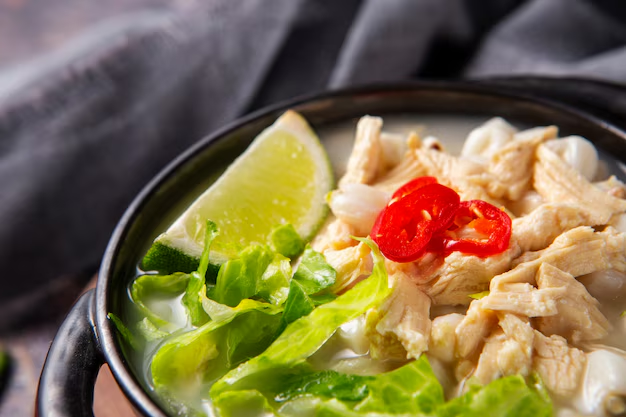How Long Does Chicken Soup Last in the Refrigerator? Tips for Optimal Storage 🍲
Chicken soup is a comforting classic enjoyed worldwide, whether as a remedy for colds, a warming winter meal, or a stomach-soothing staple. However, once you've simmered your soup to perfection, a common question arises: How long will chicken soup last in the refrigerator? Understanding the proper storage techniques and factors affecting the shelf life can help you enjoy your soup safely.
Keeping It Fresh: Understanding Shelf Life
The longevity of chicken soup in the fridge depends on several factors, such as preparation methods, ingredients, and storage conditions. Generally, homemade chicken soup can last 3-4 days in the refrigerator if stored properly. Commercially prepared soups might have preservatives that extend their shelf life slightly.
Key Factors Affecting Shelf Life
Several aspects influence how long chicken soup can stay fresh:
- Ingredients and Preparation: The type of ingredients used, such as fresh vegetables, cream, or spices, can impact the soup's shelf life.
- Storage Conditions: The temperature and location of storage in the fridge play crucial roles. Ensure your fridge is set to 40°F (4°C) or below.
- Preservatives: Canned soups or those containing preservatives may last longer due to added stabilizing agents.
Proper Storage Techniques for Longer Shelf Life
To maximize the freshness and safety of your chicken soup, it's crucial to follow recommended storage practices.
Immediate Cooling
After cooking, cool your soup quickly to avoid bacteria growth. Divide large portions into smaller containers or use an ice bath to expedite the cooling process.
Airtight Containers
Store chicken soup in airtight containers or jars. This keeps unwanted odors out and prevents contamination.
Refrigeration Tips
Place the soup in the fridge as soon as it cools. Avoid leaving it at room temperature for more than two hours.
Freezing for Extended Storage
If you want your chicken soup to last beyond a few days, freezing is an excellent option.
- Proper Container: Use freezer-safe bags or containers.
- Labeling: Mark the containers with the date to keep track of storage time.
Spotting Spoilage: Knowing When to Discard
Knowing when your chicken soup has surpassed its prime is crucial to avoid foodborne illness.
Signs of Spoiled Chicken Soup
- Odd Odors: A sour or off smell is a red flag.
- Unusual Texture or Color: Cloudy broth, separation, or a slimy layer indicates spoilage.
- Mold Growth: Any appearance of mold means the entire batch should be discarded.
When in Doubt, Throw It Out
If you're ever unsure about the freshness of your chicken soup, it's safer to discard it.
Related Topics on Food Storage 🍽️
Understanding how long chicken soup lasts is just one piece of the puzzle in mastering efficient food storage. Here are some related considerations:
Best Practices for Storing Homemade Soups
- Batch Cooking: Make large soup batches and divide them for both immediate use and freezing.
- Portion Control: Store servings in individual containers to avoid repeated thawing and refreezing.
Preserving Nutrients and Flavor
To preserve the nutrients and flavor of your chicken soup after storage, gently reheat it on the stovetop rather than using the microwave, which can unevenly heat and potentially degrade the meal quality.
Using and Reusing Leftovers
Creative ways to use leftover chicken soup include making a casserole, transforming it into a stew with added ingredients, or using as a base for new dishes.
Quick Tips for Chicken Soup Storage 📝
Here's a handy summary to keep your chicken soup safe and delicious:
- 🕑 Quick Cool: Refrigerate within two hours of cooking.
- ❄️ Freeze It: For long-term storage, freeze soup in 1-2 person portions.
- 🏷️ Label: Always date your soup to monitor storage time.
- 👃 Smell Test: If it smells off, it's time to discard.
- 🌡️ Temperature Check: Ensure fridge temperature is at or below 40°F (4°C).
Closing Insight: Balancing Flavor and Safety
Preserving the flavor and nutritional quality of chicken soup is as important as ensuring its safety. With the right strategies, you can enjoy this beloved dish without worry. Remember, your kitchen is a place for creativity and care, and understanding food storage enhances both.
So the next time you stir up a pot of chicken soup, store it with confidence, knowing you're keeping it as wholesome as possible for you and your loved ones. Enjoy every spoonful, knowing each has been handled with care and consideration!

